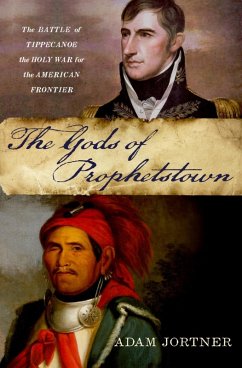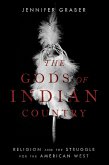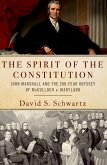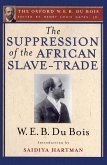It began with an eclipse. In 1806, the Shawnee leader Tenskwatawa ("The Open Door") declared himself to be in direct contact with the Master of Life, and therefore, the supreme religious authority for all Native Americans. Those who disbelieved him, he warned, "would see darkness come over the sun." William Henry Harrison, governor of the Indiana Territory and future American president, scoffed at Tenskwatawa. If he was truly a prophet, Harrison taunted, let him perform a miracle. And Tenskwatawa did just that, making the sun go dark at midday. In
The Gods of Prophetstown, Adam Jortner provides a gripping account of the conflict between Tenskwatawa and Harrison, who finally collided in 1811 at a place called Tippecanoe. Though largely forgotten today, their rivalry determined the future of westward expansion and shaped the War of 1812. Jortner weaves together dual biographies of the opposing leaders. In the five years between the eclipse and the battle, Tenskwatawa used his spiritual leadership to forge a political pseudo-state with his brother Tecumseh. Harrison, meanwhile, built a power base in Indiana, rigging elections and maneuvering for higher position. Rejecting received wisdom, Jortner sees nothing as preordained-Native Americans were not inexorably falling toward dispossession and destruction. Deeply rooting his account in a generation of scholarship that has revolutionized Indian history, Jortner places the religious dimension of the struggle at the fore, recreating the spiritual landscapes trod by each side. The climactic battle, he writes, was as much a clash of gods as of men. Written with profound insight and narrative verve,
The Gods of Prophetstown recaptures a forgotten turning point in American history in time for the 200th anniversary of the Battle of Tippecanoe.
Dieser Download kann aus rechtlichen Gründen nur mit Rechnungsadresse in A, B, BG, CY, CZ, D, DK, EW, E, FIN, F, GR, HR, H, IRL, I, LT, L, LR, M, NL, PL, P, R, S, SLO, SK ausgeliefert werden.









